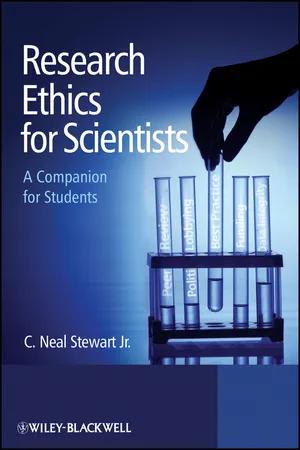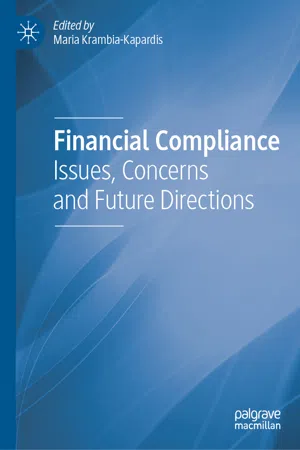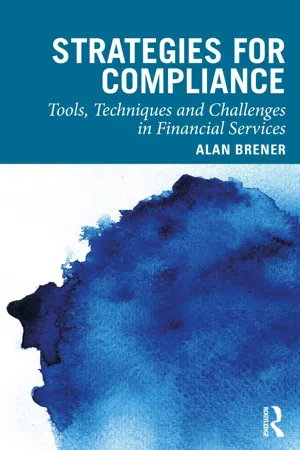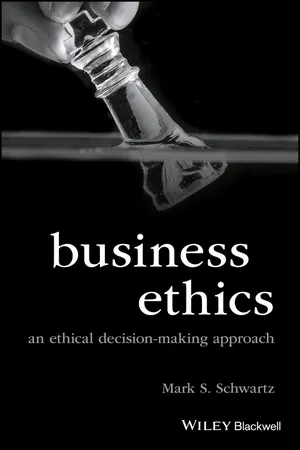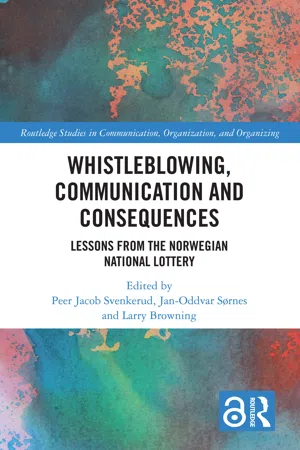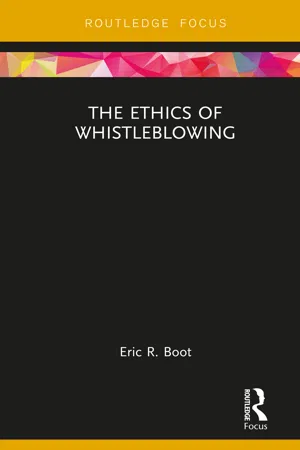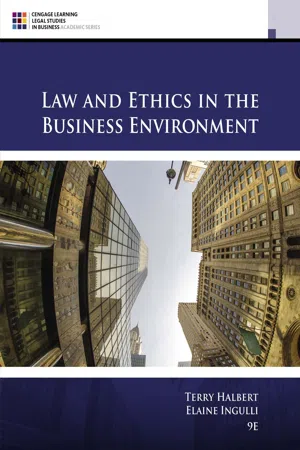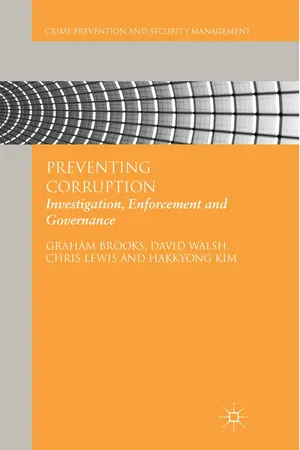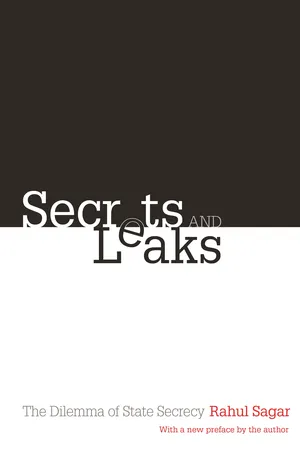Psychology
Disobedience and Whistle-Blowing
"Disobedience and Whistle-Blowing" refers to the act of going against authority or rules, and the act of reporting unethical or illegal activities within an organization, respectively. Both concepts are relevant in understanding individual behavior within social structures and the ethical dilemmas that individuals may face when confronted with unjust or harmful situations.
Written by Perlego with AI-assistance
Related key terms
1 of 5
9 Key excerpts on "Disobedience and Whistle-Blowing"
- eBook - ePub
Research Ethics for Scientists
A Companion for Students
- C. Neal Stewart, Jr.(Authors)
- 2011(Publication Date)
- Wiley(Publisher)
Chapter 7 Research Misconduct: Falsification and WhistleblowingABOUT THIS CHAPTER- One of the most difficult decisions a scientist makes is when and how to report a case of research misconduct.
- The decision has important consequences for the reporter and reportee as well as other people in the lab and university.
- Reporting misconduct discovered as a reviewer is easier than blowing the whistle on a colleague, but this should not be done casually.
- Science integrity is our corporate responsibility, but there are many procedural considerations to be weighed up when contemplating blowing the whistle.
Integrity is tested when misdeeds are observed and a scientist is left with a difficult decision: report misconduct, or not? How is it done? What about the special instance in which it is believed that a student's colleague or mentor is making up data? What are the consequences? Whistleblowing is not for the faint of heart, since there are many documented examples of retribution and unintended negative consequences that do not favour the whistleblower. Indeed, great courage is required by responsible scientists to face unpleasant facts and do the right thing for the sake of science integrity. This chapter is perhaps the most important one in this book inasmuch as it, in many ways, defines professional ethics in research science. The chapter integrates mentorship, responsible conduct in research, grantsmanship, research pressure, with the responsibility we all share as citizens in science.Whistleblowing takes its meaning from reporting wrongdoing, e.g., a crime in society or breaking the rules in a game, say, when a policeman blows the whistle on a criminal or a referee whistles a foul in sports. In all cases, the perpetrator is not very happy with the whistle being blown and many other people are often dismayed as well (e.g., think about your reaction when your favourite football team is called for a penalty). Almost nobody seemingly appreciates the whistleblower. If the person being reported is popular, personable, and had apparently lived an exemplary life in the past, there is a tendency to judge that the whistleblower is simply wrong or vengeful. It is true that being wrongly accused of wrongdoing is hurtful towards one's reputation and career. Whistleblowing is not something to be done without great consideration. The possibility of errant whistleblowing is also threatening and a factor in non-collegiality. After all, if the whistle can be blown on my colleague, then perhaps I'm the next target. Reporting FFP should always be done after very careful contemplation and with due diligence. - eBook - ePub
Financial Compliance
Issues, Concerns and Future Directions
- Maria Krambia-Kapardis(Author)
- 2019(Publication Date)
- Palgrave Macmillan(Publisher)
4), which describes it as “the disclosure by organization members (former or current) of illegal, immoral or illegitimate practices under the control of their employers, to persons or organizations that may be able to affect action”. In essence, the “whistleblower attempts to exert power to change the behaviour of some members of the organization” (Near and Miceli 1995, p. 686) to address non-compliance with laws, regulations or organizational ethical standards, as reflected in the organization’s code of ethics and policies. Internal whistleblowing refers to reporting channels inside the organization (to people such as compliance officers) while external whistleblowing typically refers to reporting channels outside the organization (such as media or regulators) (Miceli et al. 2008). While a lot of legislative attention has developed over the years on the protection of whistleblowers, in many instances it has not been effective in protecting whistleblowers or encouraging whistleblowing. This is likely a consequence of the perception of whistleblowing by management as disloyal and costly, despite research evidence that shows the benefits of whistleblowing and its appropriate management (Miceli et al. 2009). Near and Miceli (2008) find that “policy actions by lawmakers aimed at increasing the penalties for wrongdoing … and increasing sensitivity to wrongdoing may have more impact on the incidence of whistleblowing than laws aimed at reducing retaliation against whistleblowers. If executives terminate wrongdoing when informed about it, then observers of wrongdoing may be more likely to blow the whistle” (p. 278). They further speculate that a clear understanding by executives of what constitutes wrongdoing (by societal, legal or organizational standards) and the penalties they will incur if wrongdoing continues is likely to result in them being more receptive to whistleblower disclosures and more willing to terminate reported wrongdoing - eBook - ePub
Strategies for Compliance
Tools, Techniques and Challenges in Financial Services
- Alan Brener(Author)
- 2020(Publication Date)
- Routledge(Publisher)
As discussed elsewhere, both regulators and management face severe difficulties in knowing what is really going on inside an organisation. Consequently, early awareness of issues should be welcomed by managers. Whistleblowing needs to be acknowledged as a tool of management and compliance. Second, it gives an indication of the culture and ethics of a business. This includes providing an indication of how receptive an organisation is to internal criticism, whether it listens and takes action, and the extent to which managers adopt a more vindictive approach seeking out the person who has raised their concerns, and visiting retribution upon them as a warning to others to keep quiet in the future. ‘Whistleblowing’ and compliance Whistleblowing can be defined as ‘the disclosure to a person or public body, outside normal channels and management structures, of information concerning unsafe, unethical or illegal practices’. 3 It is difficult to express how important whistleblowing is for regulators, regulated firms and the senior management, board and the various control functions within the firm. If handled properly it can give them all an insight into the bowels of the business. Those who raise concerns are like gold dust and should be treated accordingly. They are likely to be both brave and loyal, imbued with an inner sense that something is not quite right - eBook - ePub
Business Ethics
An Ethical Decision-Making Approach
- Mark S. Schwartz(Author)
- 2017(Publication Date)
- Wiley-Blackwell(Publisher)
While we might hope that the internal reporting of misconduct would help alleviate the problem, research surveys instead indicate that 21% (up from 12% in 2007) of those reporting misconduct experience some form of retaliation in return. 23 Examples of retaliation include exclusion from work activity, receiving the cold shoulder, verbal abuse by managers and other employees, almost losing one's job, and not receiving promotions or raises. 24 Forty-six percent of employees indicate fear of retaliation as the reason they did not report wrongdoing. 25 Such empirical evidence suggests that it may be unwise for an employee to report any wrongdoing. Due to its continued importance, frequency of occurrence, and normative complexity as an ethical dilemma, this chapter will examine the issue of whistleblowing, particularly in light of new developments in whistleblowing legislation and corporate compliance and ethics programs. In so doing, an attempt is made to build on and refer to existing whistleblowing literature. 26 For the purposes of this chapter, while there are numerous definitions, reliance will be placed on a relatively broad and general definition of whistleblowing as consisting of an attempt by a member or former member of an organization to disclose wrongdoing in or by the organization. 27 Whistleblowing can be of two general types. Internal whistleblowing involves reporting misconduct to a party within the organization including a manager, senior executive, the CEO, legal counsel, human resources manager, security, internal auditor, ombudsperson, compliance officer, ethics officer, or the board of directors. External whistleblowing consists of reporting misconduct to a party outside the firm such as a government regulator, police, media, or a special interest group. In order to understand ethical decision making in relation to whistleblowing, the chapter first provides a brief overview of the decision-making process that takes place - eBook - ePub
Whistleblowing, Communication and Consequences
Lessons from The Norwegian National Lottery
- Peer Jacob Svenkerud, Jan-Oddvar Sørnes, Larry Browning, Peer Jacob Svenkerud, Jan-Oddvar Sørnes, Larry Browning(Authors)
- 2021(Publication Date)
- Routledge(Publisher)
response efficacy remain low. So instead of acting, these whistleblowers would choose simply to try to minimize their concern about the threat. For PJS, his decision to blow the whistle reflects his perception of both high threat severity and high confidence in his ability to create change through his actions. Without that confidence, he would have felt powerless. The risks that whistleblowers tolerate reflect how they perceive and prioritize potential gains, losses, and self-efficacy.Whistleblowing and Risk
Whistleblowing increases professional, personal, and reputation risks for whistleblowers. Whistleblowers report high levels of stress, anxiety, depression, and feelings of isolation (Miceli & Near, 1992; Rothschild & Miethe, 1999). Exposing organizational wrongdoing frequently presents “dire consequences to whistleblowers, to their careers, and to their personal lives as a result of their actions” (Johnson, 2003, p. 74). At its core, whistleblowing is an act of resistance (Rothschild & Miethe, 1999). Because whistleblowers seek to create change (Near & Miceli, 1995), it can make them threatening to organizations.Context and personality differences also influence whether a potential whistleblower chooses to speak out. For example, people with a strong sense of public service are more apt to risk blowing the whistle (Brewer & Selden, 1998; Perry & Wise, 1990). Whistleblowers are also more likely to act when they feel affected personally (Near & Miceli, 1985). Perceptions of the overall goodness or badness of an event strongly influence risk behaviors (Slovic et al., 2002). Whistleblowers are also much more likely to act when the wrongdoing is both consistent and recurring (Miceli et. al, 2008).People who choose to blow the whistle put themselves in dangerous positions, frequently suffering organizational and individual repercussions (Rehg, Miceli, Near, & Van Scotter, 2008). Perceptions of retaliation influence whistleblower behavior (Miceli et al., 2008). Whistleblowers feel isolation and often endure hardship from people both within and outside the organization (McGlynn & Richardson, 2014). Previous research on whistleblowing and risk focuses largely on the risks of exposing organizational wrongdoing. However, each whistleblowing case is unique, since context and industry factors individualize them (Richardson & McG-lynn, 2011). - eBook - ePub
- Eric R. Boot(Author)
- 2019(Publication Date)
- Routledge(Publisher)
Most relevant for our purposes is, first, the observation that the effects are different: usually, an act of civil disobedience does not immediately result in the reform or repeal of the contested law. It is most often a long process that requires the involvement of a great many people, both within and without the sphere of government, to bring about change. By contrast, a whistleblower can, on their own, disclose a great many classified documents, thus immediately undoing the decision made by our democratically elected officials to have something kept secret. Second, civil disobedience and whistleblowing differ significantly concerning the possible harm they involve. 40 For example, the former does generally not involve a threat to national security, whereas this is a possibility in the case of classified public whistleblowing, given the nature of the documents disclosed. Additionally, unauthorized disclosures may result in harm to undercover agents or to ongoing military operations. These two important differences will lead me to conclude that, whatever the case may be regarding civil disobedience, there can be no moral right to whistleblowing based on a moral right to do wrong. Let us start with fleshing out the implications of the first difference. The difference is that civil disobedience may, just as with whistleblowing, involve the violation of law, but that acts of civil disobedience do not immediately result in the repeal of the contested law. Whistleblowing, instead, immediately, performatively as it were, undoes the decision to classify certain information. What distinguishes whistleblowing from civil disobedience, then, is that it involves an usurpation of power – namely classification power – whereas civil disobedients merely protest a particular policy that they oppose and aim to have reformed or repealed entirely by the democratic authority - eBook - PDF
- Terry Halbert, Terry Halbert, Elaine Ingulli(Authors)
- 2017(Publication Date)
- Cengage Learning EMEA(Publisher)
1. Organizational Policy There are a number of individual and organizational benefits associated with internal whistleblowing. Social psychology studies show that most employees report wrongdoing internally first, and report externally only after the employer’s response proves inadequate to resolve the problem, the whistleblower suffers retaliation, or both. Research suggests that employees are more likely to blow the whistle if they believe their report will successfully address the wrongdoing revealed. This is a manifestation of “self-efficacy”: individuals are more likely to engage in an activ-ity if they feel they can perform it successfully. High self-efficacy, in the context of whistleblowing, is associated with perceiving that reporting is a simple matter and that the conduct reported will be addressed if reported. Studies also indicate that an individual who observes misconduct is more likely to report it if the possible whis-tleblower feels that he or she has leverage over the wrongdoer. Further, disclosures are more likely when the subject perceives disclosure as role-prescribed. Thus, estab-lishing clear internal reporting procedures and effectively responding to disclosures likely promotes whistleblowing within organizations. Moreover, social psychology research suggests that external whistleblowers are more likely to suffer retaliation, which tends to be more severe than the retaliation faced by those who report within the organization. It follows that legal structures that support internal whistleblowing may reduce the incidence and severity of retaliation. Organizations may gain significant benefits when disclosures of their question-able or wrongful conduct are made internally, rather than to government authori-ties, the news media, or other external outlets. Ideally, these considerations alone should motivate organizations to encourage internal reporting, but this is not always the case. - eBook - ePub
Preventing Corruption
Investigation, Enforcement and Governance
- G. Brooks, D. Walsh, C. Lewis, H. Kim(Authors)
- 2013(Publication Date)
- Palgrave Macmillan(Publisher)
Exposing corruption is nothing new; the term ‘whistleblowing’ is often used to refer to an individual who witnesses and/or assumes that their employers are engaged in unethical, illegal or dangerous conduct. They then reveal this ‘conduct’ either by following internal organisational rules or contact an external organisation, such as the media, and expose the corruption (Westin, 1981). Once a ‘concern’ has been raised, they are either praised, or degraded and stigmatised. The actions of the whistleblower can be morally justified, yet they are regularly frowned upon as they disclose confidential information, which was obtained as a result of ‘working on the inside’ (Gobert and Punch, 2000: 27) as an ethical employee or involved in the corruption. This chapter is a review of the complex nature of whistleblowing and the consequences for those that expose corruption.Defining the problem: What is whistleblowing?Whistleblowing is defined often, and in differing ways. It is suggested that it should contain eight elements: (1) an actor or actors, that is a current and/or former member of an organisation (2) the target, that is, the organisation or member(s) of its management which/who conduct unethical or immoral act(s); (3) the disclosure recipient, such as the person or organisation to whom/which the whistle is blown; (4) the subject, the form and nature of the unethical or immoral conduct; (5) the information, documentation that is provided as evidence of some significant kind of misconduct or immoral practice; (6) the act, such as the information that is released outside normal channels of communication, which can be external or internal; (7) the motive, such as the release of such information as a voluntary moral protest; and (8) the outcome, that is, as a result of releasing such information, the unethical or immoral conduct is stopped and the public interest is protected (Jubb, 1999; Boatright, 2000).Put simply then, whistleblowing is when an employee discloses information to their employer, a recognised regulator, or, in some cases, the media. This information, often discovered at work, is disclosed when an employee is concerned about some danger, or illegal practice at the company they are generally employed by. - eBook - ePub
Secrets and Leaks
The Dilemma of State Secrecy
- Rahul Sagar(Author)
- 2016(Publication Date)
- Princeton University Press(Publisher)
Chapter 5Should We Rely on Whistleblowers?Disobedience and the Problem of RetaliationI n chapter 4 I argued that the law should not condone unauthorized disclosures of classified information because officials will not always know which disclosures are in the public interest, and cannot be easily held to account when they act rashly or maliciously. But this does not mean that officials can never be justified in making unauthorized disclosures of classified information. If an official possesses classified information that reveals wrongdoing, then she may well be justified in disobeying laws that prohibit the disclosure of classified information. But what counts as wrongdoing? And when does wrongdoing justify disclosing classified information to reporters and publishers? These are the questions we must examine next.When to Blow the Whistle?There are five conditions that must be met before an official can be justified in disobeying laws prohibiting the unauthorized disclosure of classified information. The first is that the disclosure must reveal wrongdoing. But what counts as wrongdoing? There are two reasons why an official must not evaluate wrongdoing in terms of her own moral, religious, or political views. First, unlike the unhappy conscript contemplating her conscience, the official in question will presumably have volunteered to be entrusted with classified information (and likely on the explicit condition that she will not disclose it without authorization). Consequently, if the president’s secret activities and policies run counter to the dictates of her conscience, she ought to resign from her post rather than publicize the president’s actions and policies. To her employer she owes loyalty—and she may disregard this obligation only if she is confronted with a greater obligation that even her employer could recognize as legitimate.1 Second, the potentially adverse consequences of her disobedience will be borne not by her alone, but by other citizens as well, whose safety she endangers. An unauthorized disclosure, as Alexander Bickel has written, is an “impositional,” morally coercive act.2 Because she imposes a burden on her fellow citizens, an official who makes an unauthorized disclosure must evaluate wrongdoing in terms of the violation of shared
Index pages curate the most relevant extracts from our library of academic textbooks. They’ve been created using an in-house natural language model (NLM), each adding context and meaning to key research topics.
